
A population of patients with multiple myeloma describes experiencing challenges including confusion regarding the complexities of their diagnoses and managing chronic treatment-related adverse effects in a qualitative study.

Your AI-Trained Oncology Knowledge Connection!


Russ Conroy is an Associate Editor for CancerNetwork. He grew up in Hillsborough, New Jersey, and graduated from Rutgers University-New Brunswick in 2022.
On the weekends, he likes to unwind by playing video games with friends, tailgating at Rutgers football games with his family, or building his music collection with a visit to Princeton Record Exchange.

A population of patients with multiple myeloma describes experiencing challenges including confusion regarding the complexities of their diagnoses and managing chronic treatment-related adverse effects in a qualitative study.

It is crucial to ensure equitable access to high-quality survivorship care among lesbian, gay, and bisexual adolescent and young adult cancer survivors, according to Michael E. Roth, MD.

The FDA lifts its hold on a clinical program for lacutamab in lymphoma after a fatal adverse effect in the phase 2 TELLOMAK trial is determined to be related to aggressive disease progression.

Findings from a phase 3 trial highlight regression of central nervous system metastases across all heavily pretreated breast cancer subtypes with Bria-IMT.

Data from a phase 2 trial support the potential survival benefit of CAN-2409 plus prodrug for patients with borderline resectable pancreatic ductal adenocarcinoma.

Patients with non–small cell lung cancer who already received LN-145 in the phase 2 IOV-LUN-202 trial will be followed per trial protocol following the FDA’s clinical hold.

A review from the FDA confirms the dose comparison post-marketing requirement that was detailed at the time of sotorasib’s accelerated approval for those with KRAS G12C–mutated non–small cell lung cancer.

A panel of experts spoke about the armamentarium of bispecific antibody therapies for patients with relapsed/refractory multiple myeloma and discussed step-up dosing considerations for these approved agents.

Oncoplastic surgery requires collaboration between different surgical teams, pathologists, and radiologists to ensure optimal cosmetic and survival outcomes for patients with breast cancer, says Roshani Patel, MD, FACS.

Data from a meta-analysis may provide safety insights for future randomized clinical trials evaluating immune checkpoint blockade in the definitive setting for patients with cancer.

Investigators will assess the safety and preliminary clinical activity of MRBC-101 in patients with EphA5-expressing malignant solid tumors as part of a phase 1/1b trial.

Those with chronic graft-versus-host-disease who have received allogeneic hematopoietic stem cell transplant may experience enhanced graft-versus-leukemia effects, thus producing a lower relapse rate in acute myeloid leukemia.
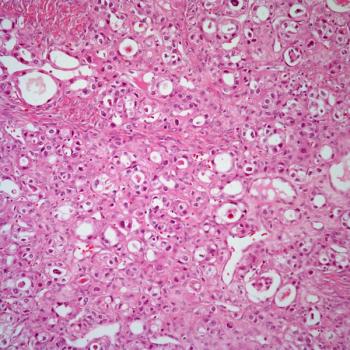
The efficacy of HIPEC plus cytoreductive surgery appears to be consistent across ovarian cancer subgroups based on age, histological type, and pre-surgery laparoscopy in the phase 3 OVHIPEC-1 trial.

Data from a real-world study may help clinicians in treatment decision-making for those with extensive-stage small cell lung cancer who are unable to afford PD-L1 inhibitors.

The FDA sets a Prescription Drug User Fee Act date of June 12, 2024, for tarlatamab as a therapy for patients with advanced small cell lung cancer.

The Lurie Cancer Center Hispanic Breast Cancer Clinic taps into the efforts of Spanish-speaking physicians, social workers, and others to help treat Hispanic patients with breast cancer, says Claudia Tellez, MD.

Data from the phase 3 APPLY-PNH trial show comprehensive control of intravascular and extravascular hemolysis with iptacopan in patients with paroxysmal nocturnal hemoglobinuria and persistent anemia.
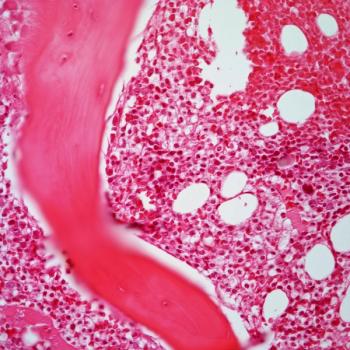
Treatment with venetoclax appears to be well-tolerated in patients with chronic lymphocytic leukemia or small lymphocytic lymphoma, says Nilanjan Ghosh, MD, PhD.

Treatment with visugromab plus nivolumab in patients with relapsed/refractory solid tumors in the phase 2a GDFATHER-2 trial appears to exhibit safety and tolerability.
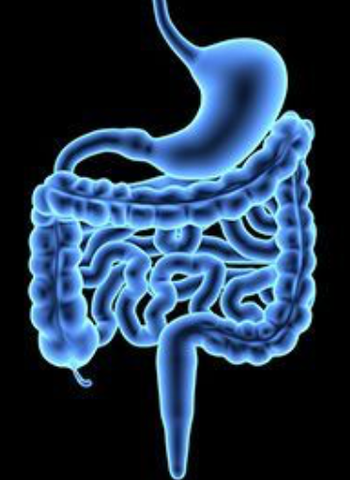
The safety profile of nivolumab plus ipilimumab in the phase 3 CheckMate 8HW trial is comparable with prior reports of each individual agent.

Treatment with iparomlimab appears to be tolerable in patients with unresectable or metastatic mismatch repair deficient or microsatellite instability–high solid tumors in a phase 2 trial.

Combining ribociclib with endocrine therapy appears to be effective and tolerable for those with hormone receptor–positive HER2-negative advanced breast cancer, including elderly patients.
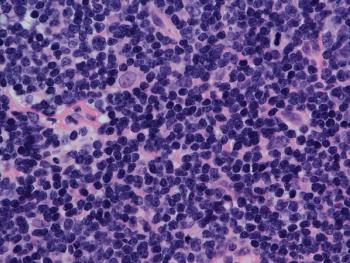
Median overall survival appears to be higher in patients who were previously treated with relapsed/refractory mantle cell lymphoma and who receive brexucabtagene autoleucel compared with standard therapy.
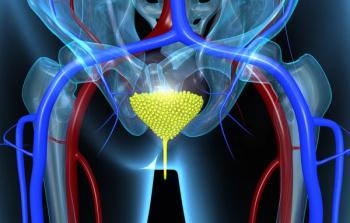
The FDA has set a Prescription Drug User Fee Act date of April 5, 2024 for nivolumab plus chemotherapy in unresectable or metastatic urothelial carcinoma.

Implementing exercise programs into standard oncology care may help improve quality of life for patients with ovarian cancer.
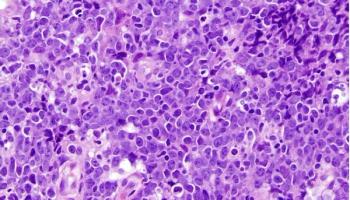
Investigators will assess LP-284 as a treatment for those with B-cell non-Hodgkin lymphoma in a phase 1 trial.
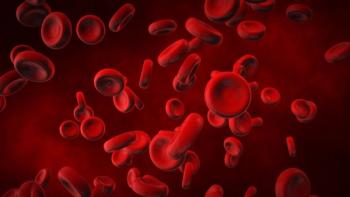
Treatment with blinatumomab or inotuzumab ozogamicin particularly confers higher total costs for patients with relapsed/refractory B-cell acute lymphoblastic leukemia.

The safety profile of venetoclax following allogeneic hematopoietic stem cell transplantation in patients with chronic lymphocytic leukemia appears to be comparable with other reports in clinical trials.

Investigators note a trend towards improved overall survival with cadonilimab plus chemotherapy with or without bevacizumab among those with cervical cancer in the phase 3 AK104-303 trial.

Realigning value-based models to increase reimbursement for hypofractionated radiotherapy in prostate cancer may minimize barriers to access among underserved communities.